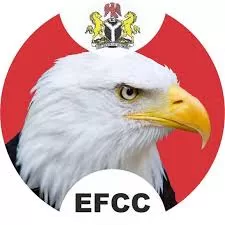
EFCC VS THE CONSTITUTION: WAITING FOR SUPREME COURT
In a matter of days, exactly on October 22, ceteris paribus, the Supreme Court will commence hearing on a case filed by 16 state governments challenging the constitutionality of the laws establishing the Economic and Financial Crimes Commission (EFCC) and two other anti-graft laws. Of the 16, the Supreme Court granted leave for consolidation with respect to two states – Ogun and Nasarawa – whose cases centre mainly around the Nigerian Financial Intelligence Unit (NFIU) guidelines.
The EFCC Act has been operational since 2004, twenty years ago. The commission was established in 2003 in swift response to the pressure from the Financial Action Task Force (FATF) on money laundering, which then categorically named Nigeria amongst the 23 countries that were stalling efforts by the international community in its efforts to combat money laundering, both local and trans-national.
At various forums these past two decades, some lawyers have raised eyebrow on how the EFCC Bill was passed into law, with some noting that its hurried transition from a Bill to an Act short-circuited a critical provision of the 1999 Nigerian Constitution (as amended).
EFCC was established by an Act of the National Assembly by the administration of President Olusegun Obasanjo. It was intended to primarily focus on economic and financial crimes in both the public and private sector. The commission was then seen as a masterstroke to tame the bogey of corruption in the country then ranked as one of the most corrupt countries in the world.
The then Vice President Atiku Abubakar it was who provided the commission the funds to get off the ground and start running. He still references this gesture till this day. In plain language, EFCC was established but was not given the necessary funds to commence operations. All that is history now. However, a good two decades after it became operational, the commission has been largely perceived as a persecution, rather than prosecutorial, agency in the hand of any ruling president.
Proponents of this school of thought point to the ranking of Nigeria in the global corruption index, pre and post EFCC establishment. Nothing really has changed. Nigeria is still highly ranked as one of the most corrupt nations of the world, currently placing a 145 out of 180 countries ranked in the latest index.
Some even argue that rather than fight and tame corruption, the EFCC has been protecting openly corrupt persons by refusing to prosecute such persons, usually politically exposed persons. They argue that EFCC only show uncommon zeal to prosecute persons who are political opponents of any incumbent president or those who hold dissenting views from those of the President. For this, they tag the EFCC a persecution agency.
But this is not the grouse of the state governments now before the Supreme Court. They are questioning the legitimacy of the EFCC as a product of a Federal law, an Act of the National Assembly, with powers over the Federating units (the states).
Already, a seven-man panel led by Justice Uwani Abba-Aji, has fixed October 22 for hearing of the suit after the states were joined as co-plaintiffs, and leave granted for consolidation of the case in the suit originally filed by the Kogi State Government through its Attorney General (AG).
The states that joined in the suit marked: SC/CV/178/2023 include Ondo, Edo, Oyo, Kebbi, Katsina, Sokoto, Jigawa, Enugu, Benue, Anambra, Plateau, Cross-River, Niger. Ogun and Nasarawa are challenging the Nigerian Financial Intelligence Unit (NFIU) Financial Guidelines. A holistic glance at the states (Plaintiffs) showed a wide spread in diversity, cutting across different political parties and across the six geopolitical zones. This shows that this matter is not political, neither is it steeped in the murky pool of partisan politics. It’s strictly about legality, constitutionality and propriety of the Act setting up the commission.
Their argument is that the enactment of the EFCC Act negated the powers and rights of the states as federating units within a Federation. They contend that as states, they have functional Houses of Assembly but the input of these Houses of Assembly was not sought in the course of the enactment of the EFCC Act as required by the 1999 Constitution (as amended).
On this, they have approached the Supreme Court to seek clarification on why the opinion of the State Assemblies was not sought as enshrined in the Constitution.
The state governments cite the case of Dr. Joseph Nwobike Vs Federal Republic of Nigeria, wherein the Supreme Court held that it was a UN Convention Against Corruption (UNCAC) that the National Assembly turned into the EFCC Establishment Act and that in enacting this law in 2003, the provisions of Section 12 of the 1999 Constitution, as amended, were arbitrarily discounted by the Federal lawmakers.
 Premium News
Premium News